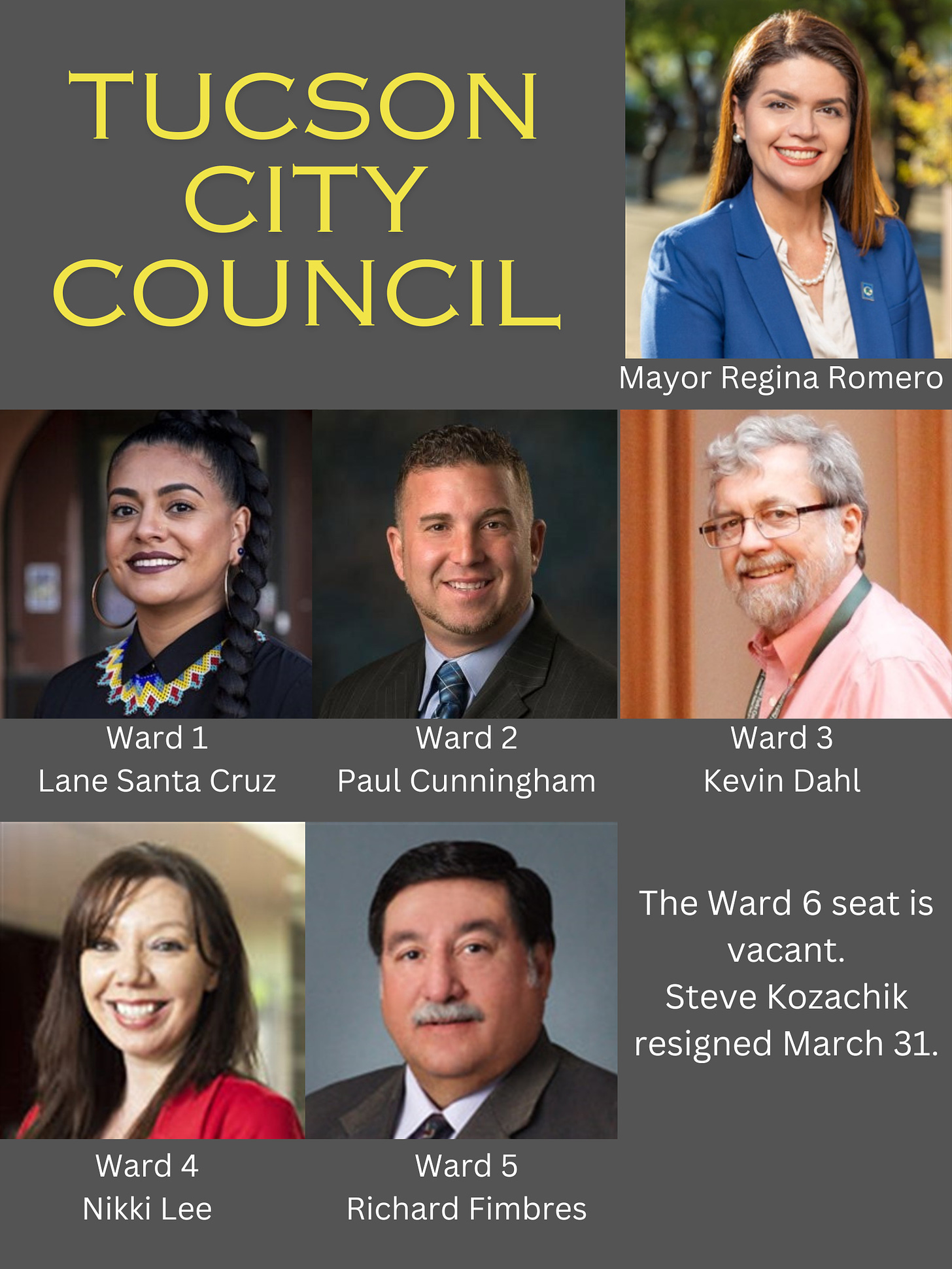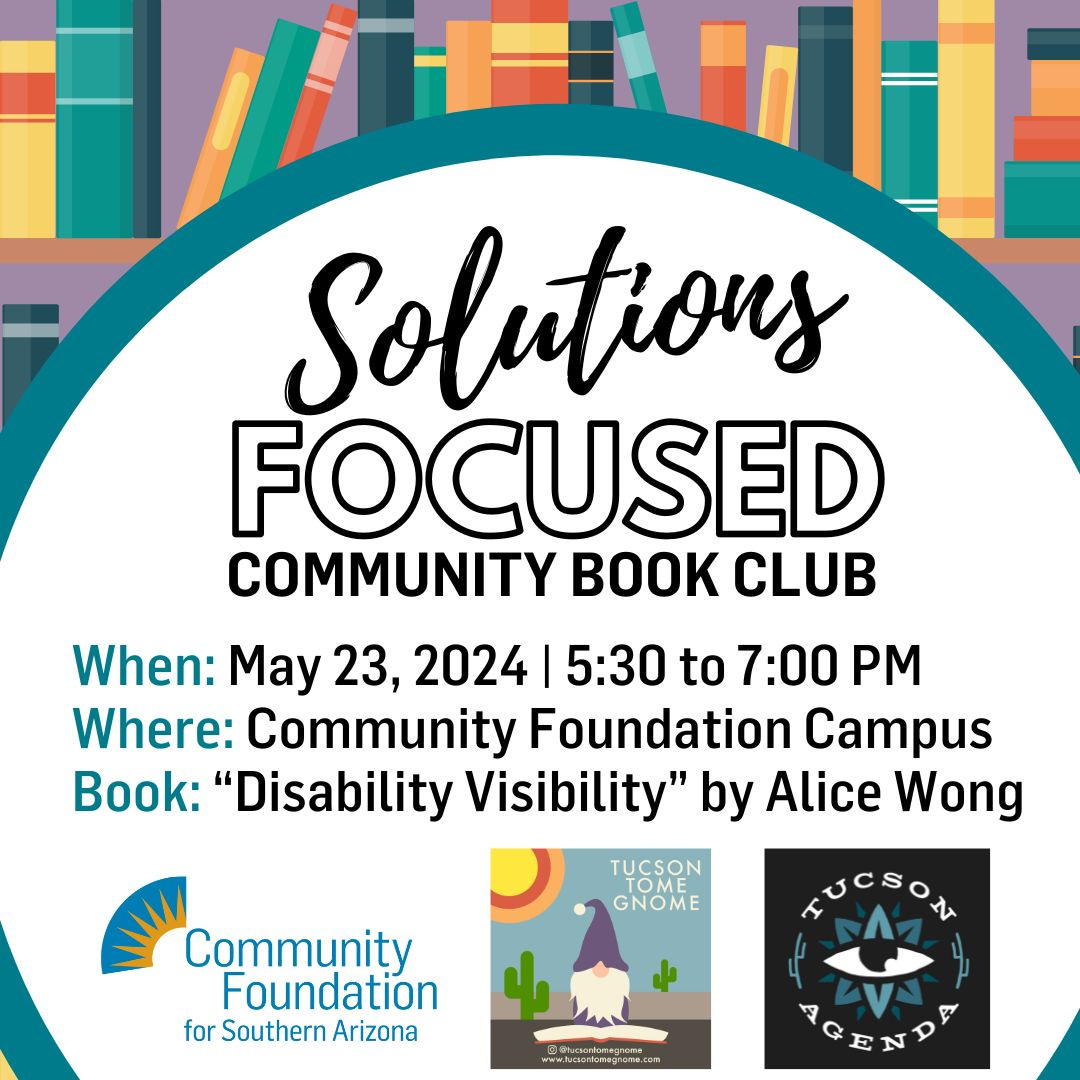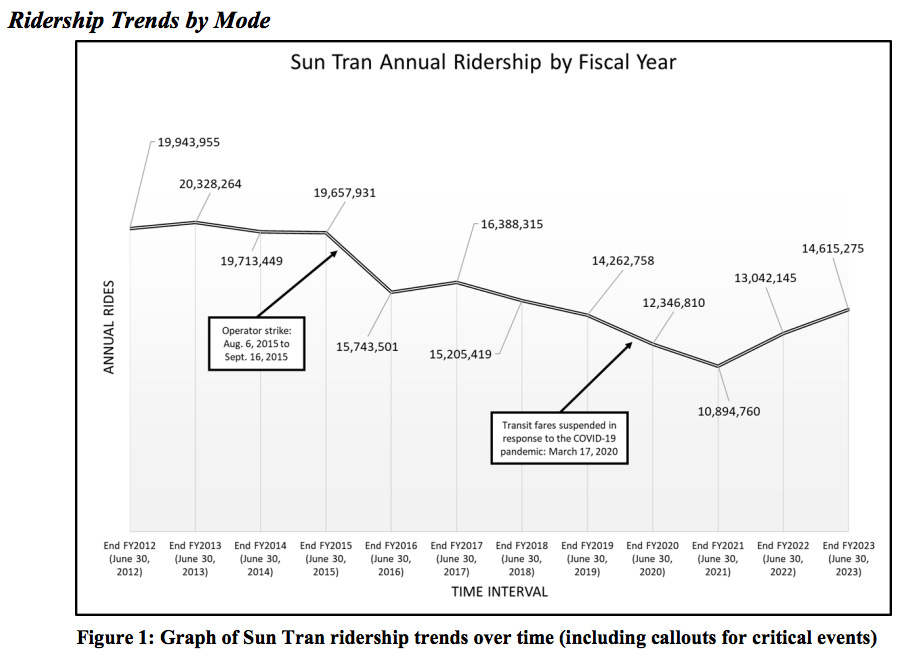The Daily Agenda: Looking ahead on fare-free transit
The Tucson City Council is staying the course... But there's still uncertainty on the horizon ... Tucson police upset protester didn’t get charged.
As the Tucson City Council moves through budget talks, all signs point to keeping the fare-free transit policy in place.
The council rebuffed City Manager Mike Ortega’s recommendation to start charging fares again. Instead, they told him to transfer $13 million from the city’s general fund to cover the projected lost fare revenue in the coming year’s budget. That opens the door for the policy to remain intact until June of next year.
So what’s next for fare-free transit in Tucson?
Now that the council has decided to fund it in next year’s budget, they’re tentatively pushing pause on further discussion. They’re going to give staff time to look up some more funding sources, other than the general fund, and then revisit the issue in September.
Meanwhile, a budget deficit looms large on the horizon. Although the coming year’s budget will be balanced, Ortega says the council should brace themselves for a $24 million deficit in fiscal 2026 and an $18 million deficit the following year.
The council still has at least another month of budget discussions and those pick back up at their meeting Tuesday, where they’ll discuss compensation and health benefits for city employees. Most of those employees are paid out of the general fund, the same source as the $13 million for fare-free transit.
As for the dynamic on the council, they appear to be mostly sold on the idea of keeping transit free. But comments from council members at recent meetings show some cracks forming as the city’s financial situation tightens.
Perhaps the most vocal supporter of fare-free transit is Council member Lane Santa Cruz, who is trying to persuade the rest of the council to look at public transportation as a core service, similar to police or firefighters. Santa Cruz often points out that revenue from fares only covered about 10% of the roughly $100 million the city spends on transportation each year.
Councilwoman Nikki Lee’s comments tend to focus more on the financial impact of fare-free transit. She appreciates being able to jump on the bus, and the benefits fare-free transit brings to low-income Tucsonans, but she’s “really concerned” about a $13 million drop in revenue.
Lee said the council should prepare for the financial pinch later this year. She suggested figuring out options for charging for specific transit services.
Councilman Paul Cunningham says helping people “get where they want to get” for free is a core value of his. At the same time, “I don’t want to bankrupt the city to do it, but more importantly, I don’t want to cut service,” he said. He advocates for a payment system for paratransit that would allow people to pay for longer trips in the city.
The dynamic on the council could change as soon as Monday, when the four finalists to replace former Councilman Steve Kozachik make presentations to the council. The council could appoint somebody that day and it’s not clear yet how the applicants view the fare-free transit policy.
As the council looks ahead, Councilman Kevin Dahl pointed to November as a key moment for fare-free transit. He advocates for the policy, but also recognizes the looming budgetary concerns.
Dahl has his eye on the potential for a “sea change” after the elections for state legislators. If Democrats win a few more seats they could shift the balance of power at the Legislature and boost issues like public transportation funding.
The Legislature is where the council has set their sights as they search for a way to fund fare-free transit. So far, they’ve come up empty on a wide array of local efforts, from raising the hotel tax to cajoling the University of Arizona to lend financial support.
The council is looking at state-shared lottery funds that used to flow to cities and counties. The Legislature stopped sharing those funds more than a decade ago, but it has emerged as one of the key prospects at recent council discussions.
While the council searches for a funding mechanism that works, it’s worth noting that although Ortega projected the lost fare revenue would be $13 million, there really isn’t a solid number to peg the cost to.
Cunningham said at last week’s meeting he couldn’t recall a time when revenue from fares was ever that high and called the figure "a good placeholder, but it’s kind of arbitrary.” The $13 million was based on ridership before the 2015 strike, Ortega told the council. He said he’d be happy to use a better figure if they have one.
It seems like every month the council explores a new way to fund the fare-free policy. We wanted to understand the discussion better, so we watched the meetings where they talked about fare-free transit since December 2022. It was an education in all the levers they can reach for when they need to find funding.
If you’re a paid subscriber, keep an eye out for an email later today with a fly-on-the-wall view of everything the council tried so far.
Shaping the future: The City of Tucson is holding two community forums to update residents and seek input on Plan Tucson, a blueprint for officials and staff to follow when establishing policies on housing, transportation, climate action and growth-related topics, the Tucson Sentinel’s Jim Nintzel writes. The first meeting will be held virtually on Tuesday, May 14 from 5:30 to 7:30 p.m. The second forum is in-person on Saturday, May 18 from 10 a.m. to noon at the Ward 2 Council Office. Advanced registration is required for both meetings.
Charges dropped: The Tucson Police Officers Association is upset that a 20-year-old protester accused of kicking an officer Tuesday night at the University of Arizona won’t be facing assault charges, KOLD’s Sean Mahoney reports. Four people are charged with misdemeanor trespassing, but the association is calling the judge’s decision to dismiss the assault charge against one “beyond unacceptable.” The public defender said during the woman’s hearing that there wasn’t enough evidence to show intent, and the judge agreed.
Fosters needed: Pima Animal Care Center needs emergency, short-term foster placement for at least 130 dogs during a construction project designed to cut down on noise in the shelter, KJZZ’s Alisa Reznick writes. The newly-funded “Decimating the Decibels” project will include adding noise-dampening panels to hard surfaces inside some kennels. The shelter is offering free crates and food to families who volunteer to foster larger dogs, and adoption fees are waived on all dogs and puppies. Construction is set to begin Monday and run through at least May 17.
Protest continues: Pro-Palestine protesters gathered at the UA Wednesday for the third day in a row, shifting their focus to criticizing administration and law enforcement’s’ treatment of protesters and continuing calls for the school to divest from Israel and Raytheon Missile Systems, Arizona Public Media’s Hannah Cree reports. UA President Robert C. Robbins sent out a campus-wide email Wednesday afternoon about the arrests, saying protesters violated campus use policies and ignored adequate warnings from police to disperse.
Legal showdown: The Goldwater Institute has filed a lawsuit challenging a new Pima County ordinance that requires gun owners to report when their weapons are lost or stolen, KJZZ”s Reznick reports. Under the rule, gun owners have 48 hours to report their missing or stolen firearm or face a $1,000 fine. Officials say the ordinance will help keep track of missing guns and fraudulent purchases, but the Goldwater Institute says it’s illegal and “re-victimizes law-abiding gun owners” whose firearms have been lost or stolen.
Attendance issues: Fewer than 10 people turned out Wednesday night for the second of three listening sessions hosted by the Arizona Board of Regents and UA’s presidential search advisory committee, the Arizona Daily Star’s Ellie Wolfe writes. The session had only two speakers and ended in under 10 minutes. The first session, which was held last week, had about 40 attendees and 12 speakers. Regent Doug Goodyear blamed the second meeting’s low turnout on the last day of classes and final exams and said the final session would include a Zoom option to allow for increased participation.
14.6 million: Ridership on the City of Tucson’s transit system last year, according to a presentation by city staff.











If the city goes ahead with the sales tax ballot question and it passes, do those funds go the general fund? Could they be used for public transportation?
I appreciate the Tucson City Council's open and honest discussion and it's commitment to staying the course regarding free bus fare. Free bus fare is a benefit to all of us and they are right to seek an Arizona Legislature that is more committed to a cleaner environment than the present one by better funding public transportation.